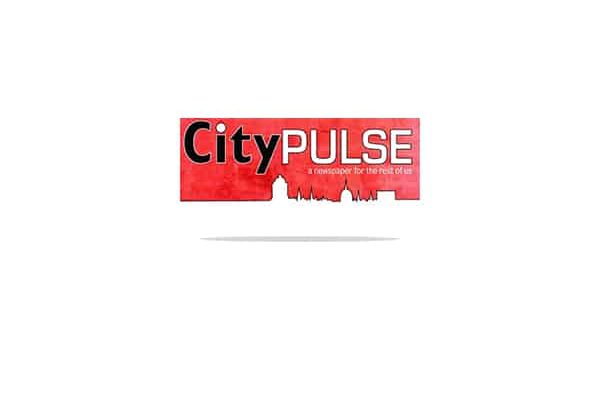Our Ohio cannabis consultants are here to help you win a license and successfully start your adult-use cannabis business.
We have a proven track record of winning cannabis licenses in Ohio. In fact, in 2021 we helped our clients obtain medical marijuana dispensary licenses, a feat in and of itself! We are prepared to do the same for adult-use license applicants as Ohio rolls out its new program.
This article will explore all aspects of obtaining an Ohio cannabis business license, from requirements to a step-by-step guide on winning. However, if you prefer to speak to an Ohio cannabis consultant, please go ahead and fill out our contact form and someone will be in touch.
Ohio Cannabis License Consultants
Laws and Regulations
To fully understand the requirements for obtaining a recreational cannabis business license in Ohio, acquaint yourself with its acts, laws, and regulations. Moreover, doing so will help you understand the types of licenses available, the application process, and the operational requirements.
Below are links to the most pertinent cannabis acts and regulations and legislative proposed bills:
- Initiative Petition “An Act to Control and Regulate Adult Use Cannabis” (to enact Chapter 3780 Adult Use Cannabis Control)
- Issue 2 (ballot language, as approved by Ohio voters)
- H.B. 354 (as introduced, it modifies adult use cannabis law and levies a gross receipts tax on cultivators)
- H.B. 86 (passed by the Senate, it revises specified provisions of liquor control, hemp, and adult-use marijuana law, and levies taxes on marijuana)
- Medical Marijuana Control Program (Ohio Revised Code 3796)
In addition, the Act tasked the Division of Cannabis Control (DCC) within the Department of Commerce to regulate adult-use cannabis. Familiarize yourself with its resources and updates.
Timeline
In November 2023, Ohio voters passed Issue 2 (“the Act”) to legalize the sale and purchase of marijuana, as well as the use and possession of recreational cannabis for adults 21 and older. This statutory initiative went into effect on December 7th, 2023.
The Division plans to meet the statutory requirements and deadlines for the initial adult use license applications for current medical marijuana facilities and “10(B)” dispensary licenses as outlined below. These applications will be available by June 7, 2024, and provisional licenses will be issued by September 7, 2024.
Per the Act, the DCC will have nine months to complete the rulemaking and licensing processes for the new program. Additionally, the DCC must issue the following licenses if the license applicant is in compliance and has a certificate of operation or medical provisional license.
- Each Medical Dispensary will be issued one adult use dispensary license
- Level I Medical Cultivator shall be issued three adult use dispensary licenses and one Level I adult use cultivator license
- Level II Cultivator shall be issued one adult use dispensary and one Level II adult use cultivator license
- Each dispensary shall be issued one adult use dispensary license at a different location if the dispensary does not have common ownership or control of any Level I, II, or processor license
- Processor shall be issued one adult use processor license
- A testing laboratory shall be issued one adult use testing laboratory license
The necessity for a shorter implementation timeline for the legal purchase of adult use marijuana has become apparent. The current status leaves adult use marijuana legal to smoke, yet, non-medical patients cannot yet buy it legally. The newly released rules set a path forward.
Nonetheless, keep in mind that the proposed rules are pending stakeholder feedback, which could impact the timeline. Our Ohio cannabis license consultants will update this page when the proposed rules become final.
Types of Adult Use Licenses
The Act does not place an official cap on the number of Ohio marijuana business licenses. However, the DCC will decide whether to issue additional licenses based on the balance of supply and demand.
These types of licenses include the following:
- Adult-use dispensary license
- Level I Adult-use cultivator license
- Level II Adult-use cultivator license
- Level III Adult-use cultivator license
- Adult-use processor license
- Adult-use testing laboratory license
It is yet to be decided whether separate dispensaries and cultivator locations will be required for adult use and medical use.
Application Requirements as expected from our Ohio Cannabis License Consultants
At a minimum, an adult-use cannabis operator applicant must provide or meet the following conditions in the application:
- Report of Criminal Records Check
- Demonstrate that it does not have any ownership or investment interest in or compensation arrangement and that it also does not share any corporate officers or employees with any of the following:
- An adult use testing laboratory licensed under this chapter
- An applicant for a license to conduct adult use laboratory testing.
- Demonstrate that operations will not be located within five hundred feet of a prohibited facility unless it was located within five hundred feet after the applicant applied with the Division
- Demonstrate tax compliance with the applicable tax laws of Ohio.
- Meet all other license eligibility conditions established in rules adopted under section 3780.03 of the Revised Code.
- The applicant is not employed by a regulatory body of a governmental unit of Ohio.
Additionally, the applicant must provide its operating procedures and plans, per Section 3780.20 of Adult Use Cannabis Control. Depending on the license type, these plans must include, but are not limited to, the following:
- Quality assurance;
- Package and labeling;
- Waste disposal;
- Inventory control and storage;
- Monitoring, surveillance, and security requirements;
- Laboratory testing;
- Records and reporting requirements;
- Hours of operation and procedures when the location is closed;
- Receipt of adult use cannabis;
- Dispensing errors reporting and review;
- Destruction and disposal of adult cannabis;
- Recall procedures; and
- Transportation of adult use cannabis.
Application and Licensing Fees
First of all, the Act mandates that the DCC establishes reasonable fee amounts to ensure license applicants and license holders in the Adult use program will pay for the actual costs for administration and licensure.
We’ll update this page when the DCC publishes the application, licensure, and renewal fees. In the meantime, review the Ohio medical marijuana application and licensing fees from the initial Ohio medical program.
- Level I cultivator certificate of operation renewal fee: $200,000.
- Level II cultivator certificate of operation renewal fee: $20,000.
- Processor certificate of operation renewal fee: $50,000 fifty thousand dollars (this is a reduction from the original medical processor renewal fees of $100,000).
- Testing laboratory certificate of operation renewal fee shall be twenty thousand dollars.
Social Equity and Preferred Applicants
The initiative includes the establishment of the cannabis social equity and jobs program to redress past and present effects of discrimination, economic disadvantage, and the disproportionate enforcement of marijuana-related laws inflicted upon many communities in Ohio over generations.
Additionally, the Act mandates key funding be provided to support social equity and job creation. It does not state how to execute the provision but leaves it to the discretion of the DCC. The Ohio General Assembly has already reworked much of the statute’s wording, including adding an expungement provision. We shall see the language of the bill when signed by the Governor.
As it is right now, the DCC shall issue up to 40 Level III adult use cultivator licenses with preference to applicants certified as cannabis social equity and jobs program participants. Similarly, the DCC shall issue up to 50 additional adult use dispensary licenses with preference given to certified cannabis social equity and jobs program participants.
Unlike in many other adult use legal states, the Ohio initiative does not include any requirements to indicate preferential treatment based on in-state residency.
Local Control
Municipalities may adopt ordinances to prohibit adult-use dispensaries, but they may not prohibit or limit existing operational medical marijuana cultivators, processors, or dispensaries. Likewise, they may not prohibit an adult use cultivator, processor, or dispensary which is co-located with an adult use cultivator and an adult use processor.
However, the co-located adult use cannabis business must already have a medical marijuana certificate of operation at the same location as of the effective date of the Act. Also, a municipal corporation or township is allowed to vote to prohibit the operation of an adult use dispensary within 120 days of the issue of the dispensary license. The operator also has a period to contest.
Now that we’ve summarized the license application process, let’s move on to how to put together a competitive application.
Tips for Winning Licenses from our Ohio Cannabis License Consultants
Step 1: Read the Laws and Regulations
All things considered, the most important step to take first is to thoroughly read the laws and rules of the adult-use cannabis program, as outlined above.
Step 2: Choose an adult-use business license type
Secondly, choose the license type which authorizes the activities you want to engage in. For example, if you want to grow cannabis, you might want to apply for a cultivation license. On the other hand, if you want to sell flower and cannabis products such as edibles and tinctures to end consumers, you may want both a processing and a dispensary license.
Next, engage our cannabis consultants to help you with your questions and the application.
Step 3: Engage our Ohio cannabis license consultants
We understand how difficult it can be to read through hundreds of pages of laws while trying to create a business simultaneously. Our cannabis consultants will coach you every step of the way and manage your application for you from start to finish.
We have one of the highest success rates in the industry at winning cannabis business licenses (+91%). Additionally, we’ve already competed for and won medical cannabis business licenses in Ohio. The members of our licensing team are experts in the market. We can help you develop a submission strategy and present the most compelling application to win a license.
Step 4: Form a business entity
Next, form a business entity for your business application. Your legal entity will allow you to enter into agreements and assemble the required business entity documents for your application. We typically find cannabis applicants set up a business entity such as an LLC or an S-corp.
Step 5: Build a team
A significant part of your Ohio adult use business application is your team’s expertise and qualifications. Given that, you should build a team that shows the regulators that you are the best candidate to receive and operate the license.
Step 6: Develop a business plan with the help of our Ohio marijuana license consultants
Once you’ve formed your entity, you should begin developing your cannabis business plan. A strong business plan will help you analyze the market opportunity, costs, and more. Additionally, you can use your business plan to recruit talent and raise capital.
Step 7: Raise capital
It’s never too early to begin raising capital. The process takes time and is often the largest hurdle for cannabis entrepreneurs. Coupled with the costs of pursuing the license alone, you’ll also incur costs from attorneys, real estate, architects, consultants, and more.
Don’t forget the application and licensing fees. Contact our cannabis license consultants to estimate the average investment required to start a cannabis business in Ohio.
Step 8: Choose a location with guidance from Ohio cannabis license consultants
With some capital in hand, it’s time for you to begin securing a location. You should ensure that your location complies with all state and local regulations, such as distance requirements and correct zoning. Also, analyze the business, social, and economic dynamics of the community where you’d like to locate.
Step 9: Garner local support
Once you’ve secured a property, the next step is to build local support and approval. The state wants to know that your chosen municipality allows and approves of your business operations in their jurisdiction. Letters of support from community organizations and local officials can benefit your application in the eyes of the DCC.
Step 10: Write and submit an application
Lastly, the final step is for you to write and submit your Ohio cannabis business license application. Here, you encapsulate all you’ve done to date and your plans. You must submit dozens of technical narratives demonstrating your ability to operate your adult-use cannabis business in Ohio.
You’ll be competing against multi-state operators, lawyers, and other consultants on your license application. Work with our cannabis license application services to write and compile the strongest application. We always aim for the top and perfect score and have a track record to prove it.
Summary from our Ohio Cannabis License Consultants
In conclusion, we can help you submit an application that will greatly increase your chances of winning a license. Generally, we find winning applicants typically start on their application 12 – 18 months before they are due.
Be that as it may, the DCC’s proposed rules set a goal to release applications for dual licenses for current medical licensees in June 2024. RFAs for new adult use business applications may not be that far away. Stay tuned!
For that reason, fill out our contact form today, and our Ohio cannabis license consultants will reach out to discuss a winning strategy. We successfully obtained a license in the last lottery round for Ohio cannabis licenses, and we are confident we can do that for you!
Additional information
Ownership limitations
Indeed, yes, the DCC will adopt and set up the process and requirements to approve any requested change in ownership or transfer of control of an adult use cannabis operator or adult use testing laboratory.
Selling and Buying Licenses and Transferring Ownership
The sale, purchase, and transfer of ownership is allowed, with provisions. The DCC will adopt and set up the process and requirements for its approval.
Expungable under the law
Issue 2 did not provide for expungement of prior convictions involving cannabis possession. However, the Senate bill passed in December added an expungement provision, stating that the Ohio attorney general shall create a process to reimburse people for their costs association for petitioning the costs for expungement, but it is not automatic. Stay tuned.
Tax rate imposed on cannabis
Firstly, the Act levies a 10% excise tax on marijuana sales, plus regular state and local sales tax. Secondly, the revenue will go toward a social equity and jobs program, mental health and addiction services, local governments, and the administrative costs of the Ohio Department of Taxation and the DCC.
However, the Senate Bill adds a large percentage of the revenue to go to law enforcement training and jails, as does HB 354. Also, HB 86, currently in its 3rd Hearing, proposes an increase in the excise tax to 15%, plus additional tax on a licensed cultivator’s marijuana receipts. Again, stay tuned for developments.
Resources from our Ohio marijuana license consultants
Ohio Medical Marijuana Dispensary License Lottery








